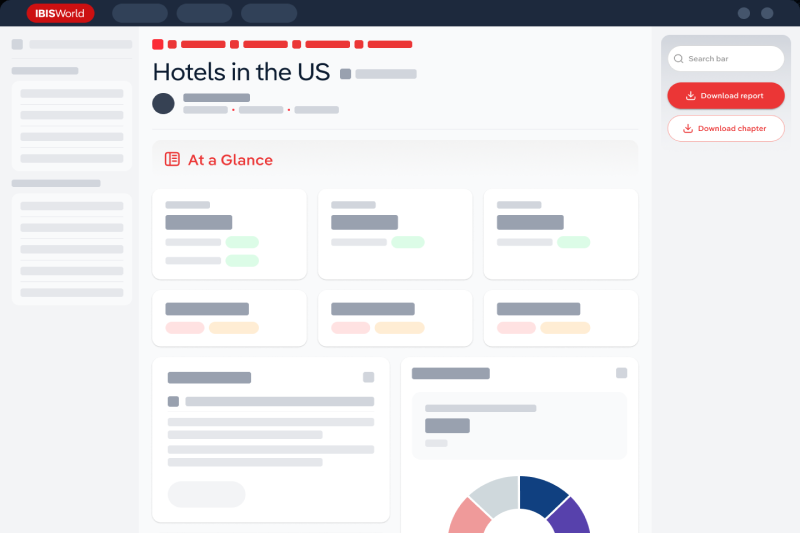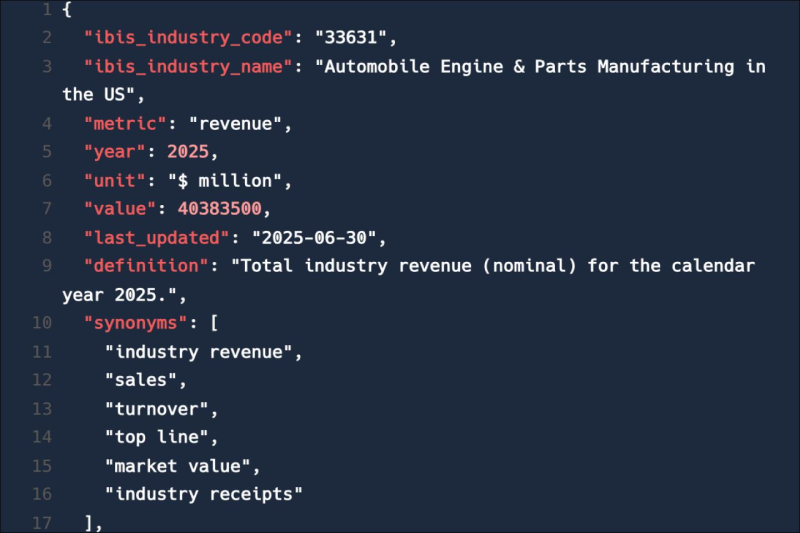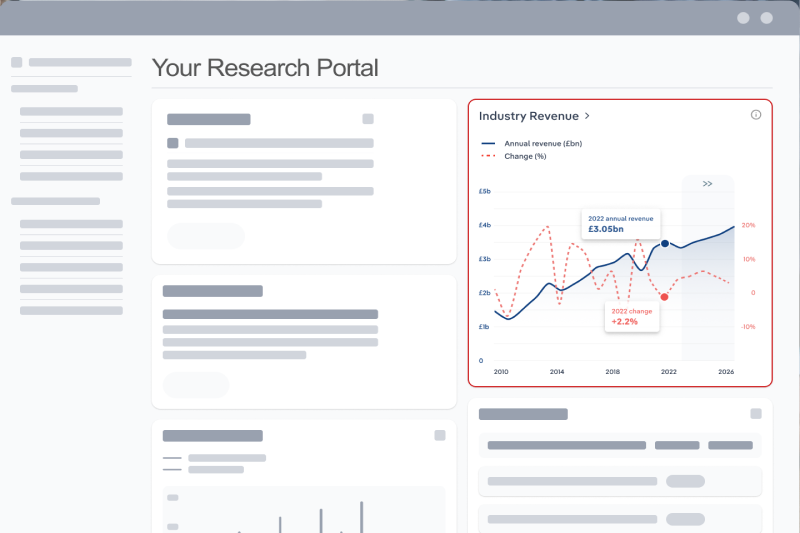IBISWorld Platform
Answer any industry question in minutes with our entire database at your fingertips.

Turnover in the sector for the manufacture of plastic construction supplies has declined over the past five years, falling by an average of 0.5% per year. The construction industry is currently characterised by a weak economy and a decline in building permits, which has led to a significant drop in demand for building supplies. The decline in demand has resulted in falling sales, increasing price pressure and reduced capacity utilisation. As a result, many manufacturers have expanded their product portfolio to include applications in the areas of renovation and infrastructure. In addition, investments were increasingly focussed on innovative, energy-efficient construction products and new foreign markets were opened up to compensate for the lower domestic revenue.

Answer any industry question in minutes with our entire database at your fingertips.

Feed trusted, human-driven industry intelligence straight into your platform.

Streamline your workflow with IBISWorld’s intelligence built into your toolkit.
IBISWorld's research coverage on the Plastic Construction Supplies Manufacturing industry in Germany includes market sizing, forecasting, data and analysis from 2015-2030. The most recent publication was released November 2025.
The Plastic Construction Supplies Manufacturing industry in Germany operates under the WZ industry code C22.23DE. In this industry, building supplies are manufactured from plastics. On the one hand, these are mass-produced items such as floor coverings and, on the other, more complex sanitary items such as bathtubs. Related terms covered in the Plastic Construction Supplies Manufacturing industry in Germany include augmented reality, virtual reality, 3-d printing and internet of things (iot).
Products and services covered in Plastic Construction Supplies Manufacturing industry in Germany include Door and window systems including roller shutters, Sanitary ware and Plastic panelling for floors, ceilings and walls.
Companies covered in the Plastic Construction Supplies Manufacturing industry in Germany include Schüco International KG, Profine GmbH and Aluplast Holding GmbH & Co. KG.
The Performance chapter covers detailed analysis, datasets, detailed current performance, sources of volatility and an outlook with forecasts for the Plastic Construction Supplies Manufacturing industry in Germany.
Questions answered in this chapter include what's driving current industry performance, what influences industry volatility, how do successful businesses overcome volatility, what's driving the industry outlook. This analysis is supported with data and statistics on industry revenues, costs, profits, businesses and employees.
The Products and Markets chapter covers detailed product and service segmentation, analysis of major markets and international trade data for the for the Plastic Construction Supplies Manufacturing industry in Germany.
Questions answered in this chapter include how are the industry's products and services performing, what are innovations in industry products and services, what products or services do successful businesses offer and what's influencing demand from the industry's markets. This includes data and statistics on industry revenues by product and service segmentation and major markets.
The Geographic Breakdown chapter covers detailed analysis and datasets on regional performance of the Plastic Construction Supplies Manufacturing industry in Germany.
Questions answered in this chapter include where are industry businesses located and how do businesses use location to their advantage. This includes data and statistics on industry revenues by location.
The Competitive Forces chapter covers the concentration, barriers to entry and supplier and buyer profiles in the Plastic Construction Supplies Manufacturing industry in Germany. This includes data and statistics on industry market share concentration, barriers to entry, substitute products and buyer & supplier power.
Questions answered in this chapter include what impacts the industry's market share concentration, how do successful businesses handle concentration, what challenges do potential industry entrants face, how can potential entrants overcome barriers to entry, what are substitutes for industry services, how do successful businesses compete with substitutes and what power do buyers and suppliers have over the industry and how do successful businesses manage buyer & supplier power.
The Companies chapter covers Key Takeaways, Market Share and Companies in the Plastic Construction Supplies Manufacturing industry in Germany. This includes data and analysis on companies operating in the industry that hold a market share greater than 5%.
Questions answered in this chapter include what companies have a meaningful market share and how each company is performing.
The External Environment chapter covers Key Takeaways, External Drivers, Regulation & Policy and Assistance in the Plastic Construction Supplies Manufacturing industry in Germany. This includes data and statistics on factors impacting industry revenue such as economic indicators, regulation, policy and assistance programs.
Questions answered in this chapter include what demographic and macroeconomic factors impact the industry, what regulations impact the industry, what assistance is available to this industry.
The Financial Benchmarks chapter covers Key Takeaways, Cost Structure, Financial Ratios, Valuation Multiples and Key Ratios in the Plastic Construction Supplies Manufacturing industry in Germany. This includes financial data and statistics on industry performance including key cost inputs, profitability, key financial ratios and enterprise value multiples.
Questions answered in this chapter include what trends impact industry costs and how financial ratios have changed overtime.
The Industry Data chapter includes 10 years of historical data with 5 years of forecast data covering statistics like revenue, industry value add, establishments, enterprises, employment and wages in the Plastic Construction Supplies Manufacturing industry in Germany.
More than 6,000 businesses use IBISWorld to shape local and global economies
We were able to supplement our reports with IBISWorld’s information from both a qualitative and quantitative standpoint. All of our reporting now features some level of IBISWorld integration.

IBISWorld delivers the crisp business knowledge we need to drive our business. Whether it be serving up our major clients, winning new business or educating on industry issues, IBISWorld brings real value.

IBISWorld has revolutionised business information — which has proved commercially invaluable to exporters, investors and public policy professionals in Australia and overseas.

When you’re able to speak to clients and be knowledgeable about what they do and the state that they operate in, they’re going to trust you a lot more.

The market size of the Plastic Construction Supplies Manufacturing industry in Germany is €15.3bn in 2026.
There are 1,258 businesses in the Plastic Construction Supplies Manufacturing industry in Germany, which has declined at a CAGR of 1.8 % between 2020 and 2025.
The Plastic Construction Supplies Manufacturing industry in Germany is likely to be impacted by import tariffs with imports accounting for a moderate share of industry revenue.
The Plastic Construction Supplies Manufacturing industry in Germany is likely to be impacted by export tariffs with exports accounting for a moderate share of industry revenue.
The market size of the Plastic Construction Supplies Manufacturing industry in Germany has been declining at a CAGR of 0.5 % between 2020 and 2025.
Over the next five years, the Plastic Construction Supplies Manufacturing industry in Germany is expected to grow.
The biggest companies operating in the Plastic Construction Supplies Manufacturing industry in Germany are Schüco International KG, Profine GmbH and Aluplast Holding GmbH & Co. KG
Door and window systems including roller shutters and Sanitary ware are part of the Plastic Construction Supplies Manufacturing industry in Germany.
The company holding the most market share in the Plastic Construction Supplies Manufacturing industry in Germany is Schüco International KG.
The level of competition is moderate and increasing in the Plastic Construction Supplies Manufacturing industry in Germany.




